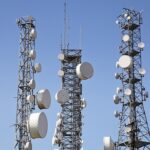The Nigerian Communications Commission (NCC) has raised alarm over an ostensibly syndicated group on the prowl to swindle unsuspecting members of the public by capitalising on the generosity of popular music star, songwriter and producer, David Adedeji Adeleke, widely known as Davido.
Davido had recently announced that he would donate N250million to various orphanage homes across Nigeria.
- NIGERIA DAILY: Why States Cannot Survive Without Federal Allocation
- Boko Haram forcing parents to withdraw children from schools, Niger raises alarm
NCC in a statement issued by its Director of Public Affairs, Dr Ikechukwu Adinde, revealed that a group of scammers has rolled out an advertorial titled ‘Davido Airtime and Data Giveaway’, which went viral, claiming that Davido is giving out free N5,000 airtime and 10GB internet data of all networks to celebrate his birthday.
The viral advertorial urged the general public to hurry and get the gift by clicking on the links that supposedly redirect them to network sites, where they will be credited with airtime and data. “This is a scam. If a promo or an offer seems too good to be true, then it is likely untrue,” Adinde said.
NCC therefore advised telecom consumers to disregard the advert or any similar bogus enticements; saying, such adverts are social engineering rip-offs designed to get people’s Mobile Station Integrated Services Digital Network (MSISDN) and other information that fraudsters can use later to defraud unsuspecting members of the public.
MSISDN is the full phone number of a cellphone, in addition to other protocol information. This number is unique and identifies subscribers/owners in a Global System for Mobile Communications (GSM) or other mobile networks.
This number can be used by some unscrupulous persons or hackers to undermine the privacy of the real owners of the number through identity theft and other scams.
The Commission assured that it will not rest on its oars in empowering telecom consumers with the requisite information and education in order to protect them from cybercriminals determined to use the telecom platforms to perpetrate fraud.

 Join Daily Trust WhatsApp Community For Quick Access To News and Happenings Around You.
Join Daily Trust WhatsApp Community For Quick Access To News and Happenings Around You.


